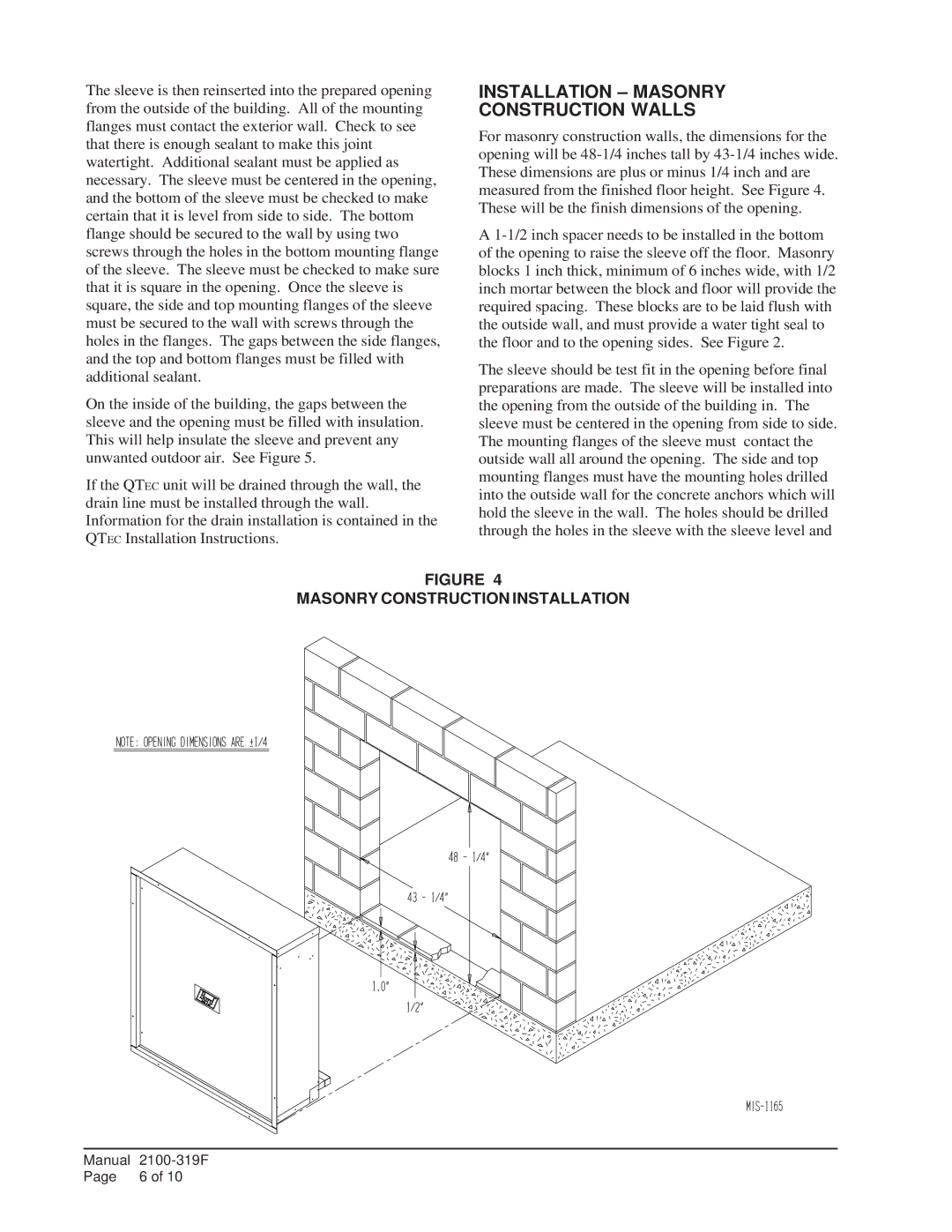QWS48A, QWS48A-30, QWS48A- 16, QWS48A-19, QWS48A-23 specifications
The Bard QWS series of units, including the QWS48A-23, QWS48A-19, QWS48A, QWS48A-16, and QWS48A-30, represents a cutting-edge range of climate control solutions designed for both residential and commercial applications. These models are known for their energy efficiency, advanced technologies, and user-friendly features, making them a popular choice among consumers seeking reliable indoor climate management.One of the defining characteristics of the QWS series is its use of inverter technology. This allows the units to adjust their cooling or heating output based on current temperature needs, leading to significant energy savings and maintaining a consistent indoor environment. The inverter systems also reduce the amount of noise produced during operation, creating a more pleasant living or working atmosphere.
The units are equipped with multi-stage filtration systems, ensuring clean air quality by capturing dust, allergens, and other particulate matter. This is particularly beneficial for individuals with respiratory issues or allergies, offering peace of mind and comfort.
Another notable feature of the QWS48A series is its smart home compatibility. These models can easily integrate with home automation systems, allowing users to control climate settings remotely through mobile apps or smart home devices. This connectivity ensures that the indoor environment can be managed effortlessly, providing comfort at any time.
In terms of design, the QWS48A series boasts a modern aesthetic that seamlessly blends into any decor. Many models feature a compact design that allows for flexible installation options, making them suitable for a variety of spaces, from small apartments to larger commercial environments.
All units in the QWS48A range come with energy-efficient ratings, highlighting their low power consumption and environmental consciousness. They are compliant with the latest energy standards, helping users reduce their carbon footprint while enjoying the comforts of advanced climate control.
Moreover, the QWS48A models are designed for durability, incorporating high-quality materials that withstand wear and tear. Features such as corrosion-resistant coatings and robust components contribute to their longevity, ensuring reliable operation over the years.
In summary, the Bard QWS series, specifically models like the QWS48A-23, QWS48A-19, QWS48A, QWS48A-16, and QWS48A-30, represents a sophisticated choice for efficient heating and cooling. With their inverter technology, superior filtration, smart home integration, and energy efficiency, these units meet modern demands for comfort, convenience, and sustainability.

